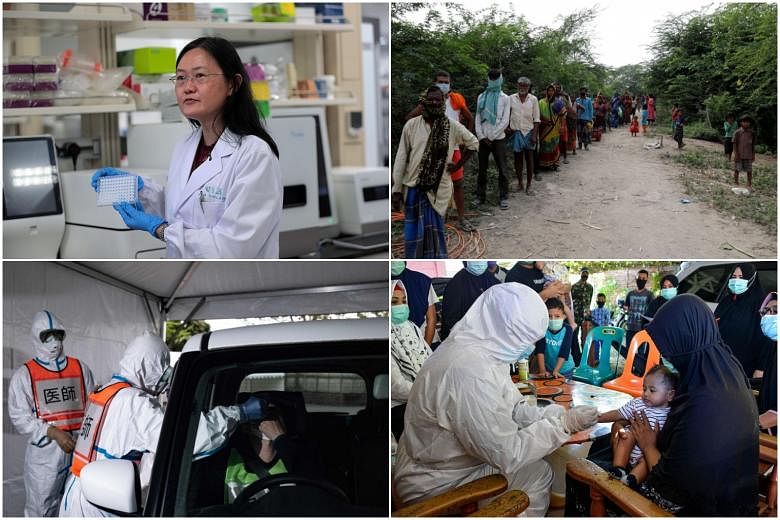Around the world, efforts in testing for the coronavirus have come under scrutiny, as the global number of confirmed cases continues to rise. The Straits Times' correspondents look at how various economies approach the matter.
China bumping up coronavirus test kit production, for local and global use
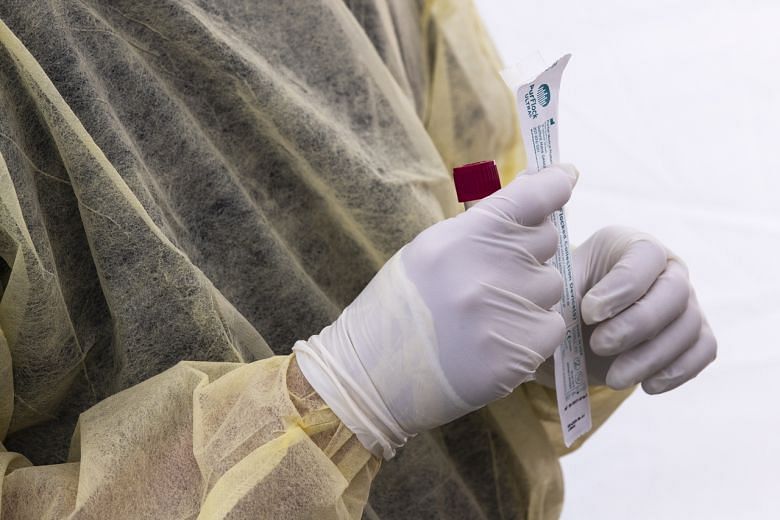
From the early days when an acute shortage of test kits left scores of people in Wuhan undiagnosed, China has dramatically ramped up the production of these supplies to meet both domestic and global demand.
Last week, e-commerce giants JD.com and Alibaba's Tmall both began offering customers the option of booking an appointment at designated laboratories to take a nucleic acid test for 258 yuan (S$52).
The authorities here are keeping up with Covid-19 testing even as the number of infections has fallen dramatically in China.
Taiwan doing more screening, to avoid new coronavirus outbreak
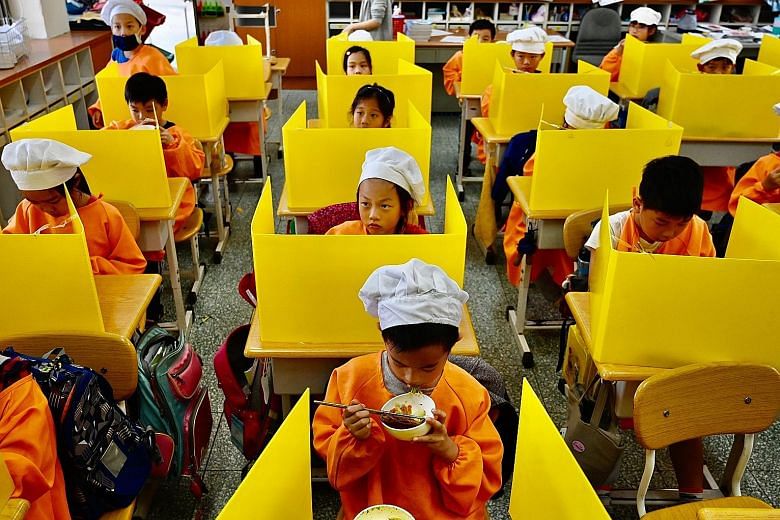
With just over 420 confirmed cases and six deaths as of Tuesday, the load has not been significant on the more than 480 hospitals in Taiwan.
This has meant fewer patients for each medical worker, resulting in better treatment and controls to stem the spread of the coronavirus.
Unlike South Korea and Italy, where cases spiked quickly, the island has not needed lockdown measures. Mass testing has been ruled out for the time being, a decision Taiwan's Central Epidemic Command Centre (CECC) head Chen Shih-chung on Tuesday said is backed by the low rate of infection.
Japan's low test rates resulted in wider spread of coronavirus
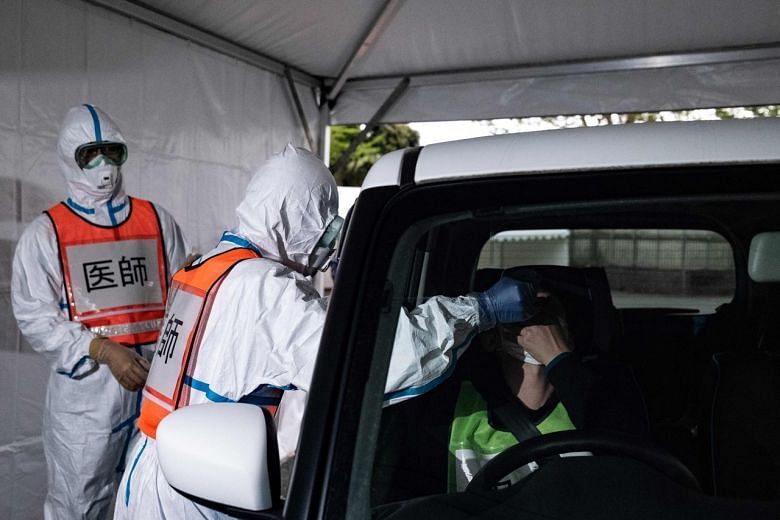
Japan has been criticised for testing people only at a fraction of its capacity, a strategy that has proven ineffective amid growing community contagion with no clear links of transmission.
Still, there are complex reasons behind the initial reluctance to conduct more polymerase chain reaction (PCR) tests, said Japan Medical Association president Yoshitake Yokokura.
First, the testing capacity had been limited to only about 2,000 a day, a figure that has since risen to about 15,000. Prime Minister Shinzo Abe said on Tuesday that he wants capacity to be raised further to 20,000 cases a day.
South Korea's early action to boost production of kits helped curb coronavirus spread
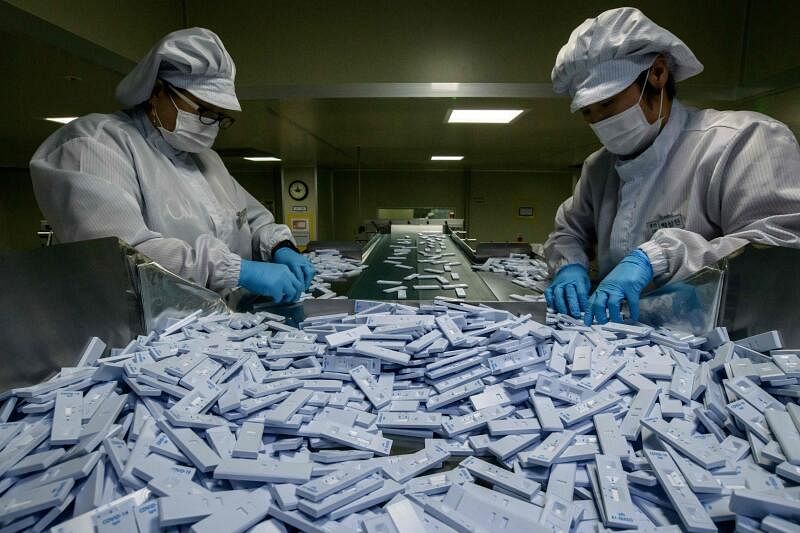
As soon as the genetic sequence of the coronavirus was revealed in mid-January, biotech firms in South Korea started developing diagnostic kits for the new virus.
On Feb 4, two weeks after the first case in South Korea emerged, the Ministry of Food and Drug Safety gave emergency approval for Kogene Biotech to manufacture the country's first Covid-19 test kit.
The 12-month approval process was cut to just one week, after painful lessons from the Middle East respiratory syndrome (Mers) outbreak in 2015 - which killed 38 of 186 infected people in South Korea - led to a change in the law to allow emergency approval during a crisis.
More coronavirus cases in Indonesia likely to be detected as more tests are conducted
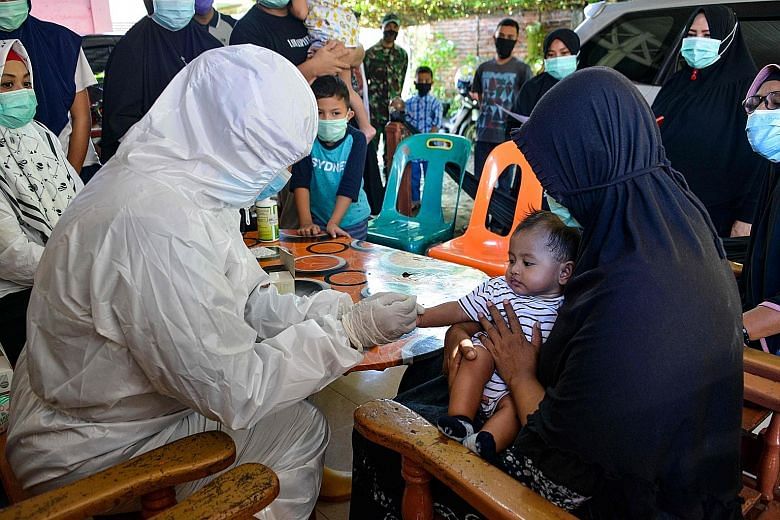
The number of detected coronavirus infections in Indonesia could rise dramatically as more tests are conducted.
Local officials are worried as data from the country's 34 provinces showed more than 2,200 Indonesians died of Covid-19 symptoms, but they were not recorded as victims of the disease.
The proportion of people being tested is now 318 per million - an improvement over the 36 per million which made Indonesia the fourth-worst in testing rate among countries with a population of 50 million and above, according to pandemic data site Worldometer.
India gunning for self-reliance and cheaper kits amid rise in asymptomatic coronavirus cases
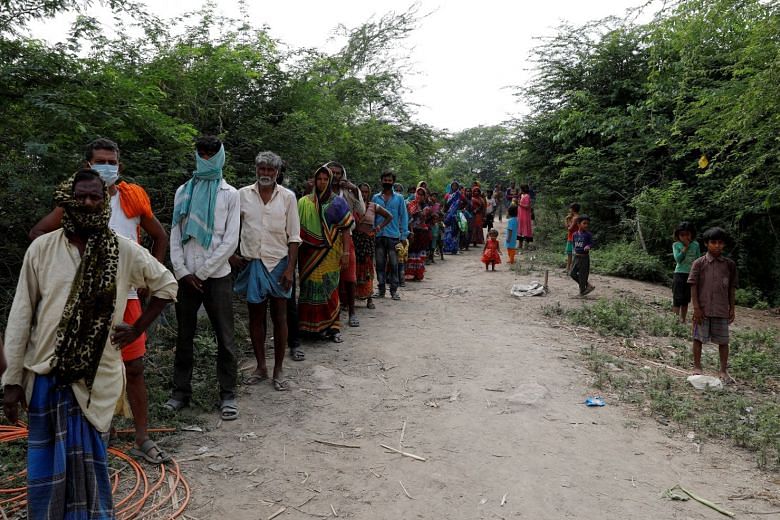
In January, when a laboratory in China shared the first genome coronavirus sequence, Mr Sankarapandian Selvaraj started work on an indigenous test kit in the southern city of Chennai in India, which that month recorded its first virus case.
His firm, Helini Biomolecules, had a kit ready by March, by which time a stringent lockdown was in place, making it difficult to send the diagnostic test for government validation.
It was only in mid-April that the firm, along with a few others, was given permission to make real-time polymerase chain reaction test kits that can produce results in six to eight hours. The kits rely on molecular tests for Covid-19 using nasal and throat swabs.
Donald Trump mobilises private sector to spur coronavirus tests
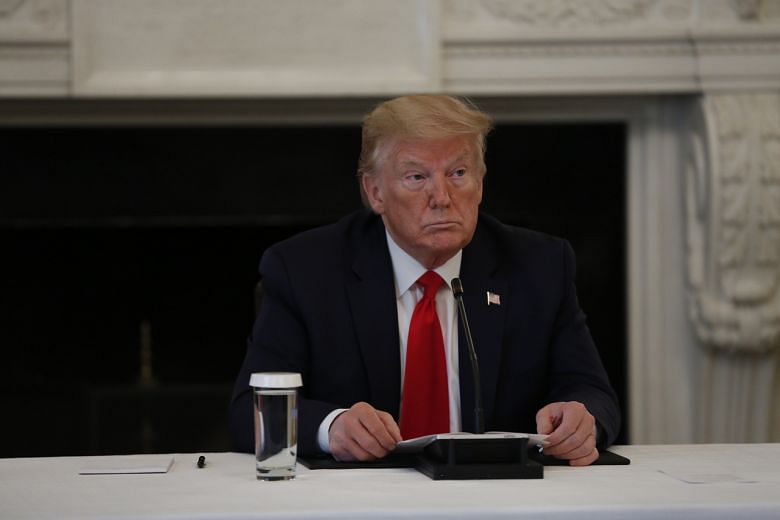
President Donald Trump on Monday put a string of top private industry executives on the microphone at the Rose Garden at the White House, to pledge dramatically ramped-up testing for Covid-19, seen as critical to a sustainable return to business.
The announcement came as several states cautiously began to allow some suspended activities to resume, even as the United States the very next day surpassed one million infections. The coronavirus has killed more than 59,000 people in the country.
Testing has been the country's Achilles heel, with the first batch of faulty tests causing the US to lose an entire month in terms of surveillance for Covid-19.
Singapore in a good position to do mass Covid-19 testing, say experts
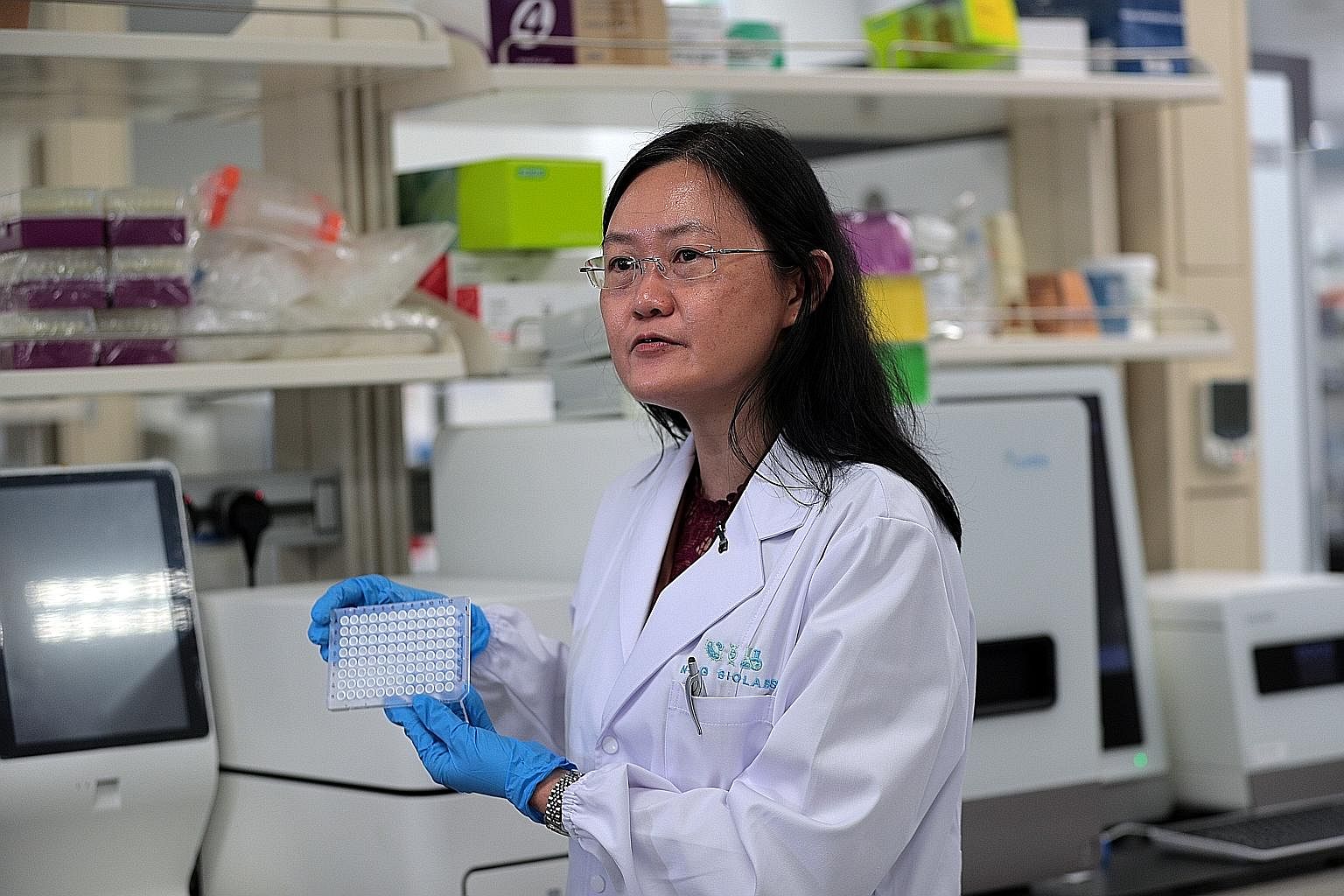
Singapore has the capability to do tens of thousands of Covid-19 tests daily, industry players said, noting that increased testing could be a key enabler for the country as it looks to gradually lift the circuit breaker measures.
"We are in a good position to do mass testing," Dr Ong Siew Hwa, director and chief scientist of home-grown biotech firm Acumen Research Laboratories (ARL), told The Straits Times.
Currently, the country can do more than 8,000 polymerase chain reaction (PCR) tests a day, up from 2,900 at the start of this month.
Let's get real about coronavirus tests
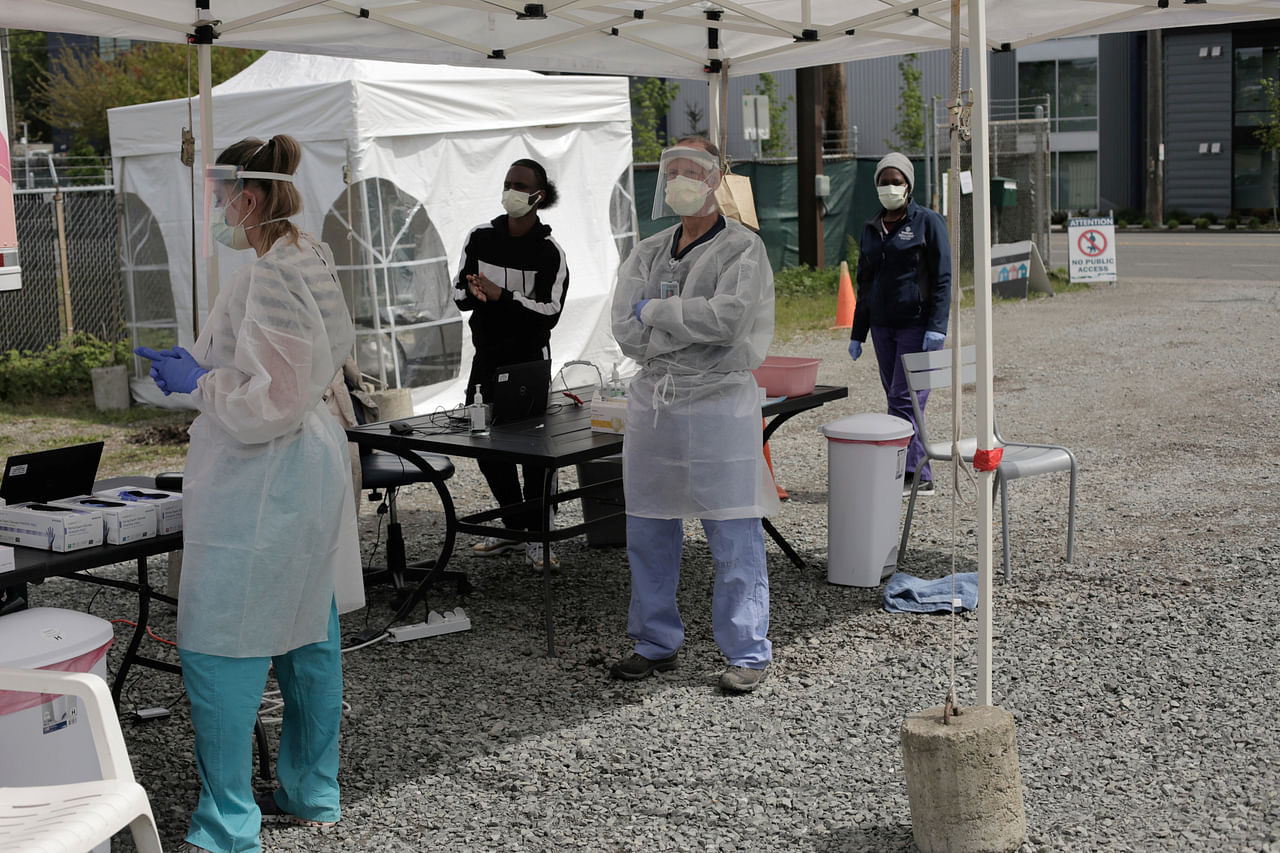
In the world's ongoing quest to respond to the Sars-CoV-2 coronavirus, one of the tools most often invoked and hailed is testing - testing for current infections, to determine who is ill and contagious, and testing for antibodies, a sign of past infection and possibly, too, of future immunity.
The goal is to identify people who might spread the virus and isolate them, and to allow anyone protected from reinfection to resume an active social and professional life.
Democrats in the United States Senate have proposed a plan for "fast, free testing in every community". At a recent news briefing, Mr Andrew M. Cuomo, the governor of New York state, declared: "The more testing, the more open the economy."
